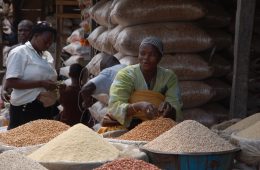The Road to Female Economic Empowerment Thinking about Women-Owned Enterprises in Nigeria
A growing body of evidence points to the recognition that empowering women economically is essential not only for women to realise the full range of their right... Read More...



